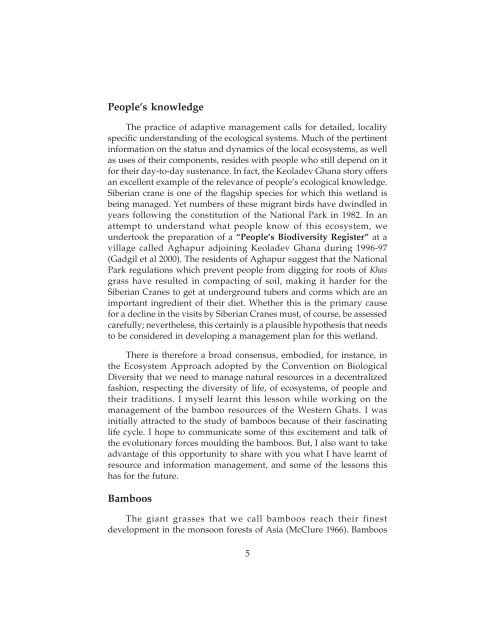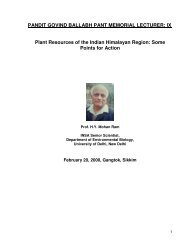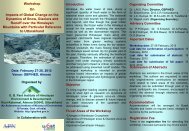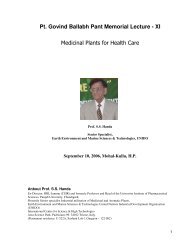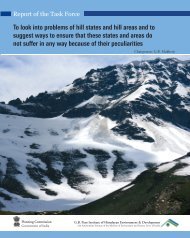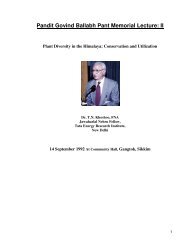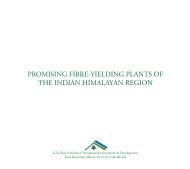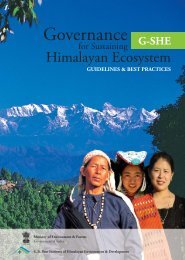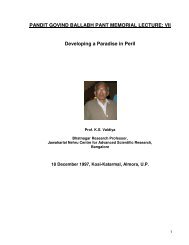Pt. Govind Ballabh Pant Memorial Lecture : XI
Pt. Govind Ballabh Pant Memorial Lecture : XI
Pt. Govind Ballabh Pant Memorial Lecture : XI
- No tags were found...
You also want an ePaper? Increase the reach of your titles
YUMPU automatically turns print PDFs into web optimized ePapers that Google loves.
People’s knowledgeThe practice of adaptive management calls for detailed, localityspecific understanding of the ecological systems. Much of the pertinentinformation on the status and dynamics of the local ecosystems, as wellas uses of their components, resides with people who still depend on itfor their day-to-day sustenance. In fact, the Keoladev Ghana story offersan excellent example of the relevance of people’s ecological knowledge.Siberian crane is one of the flagship species for which this wetland isbeing managed. Yet numbers of these migrant birds have dwindled inyears following the constitution of the National Park in 1982. In anattempt to understand what people know of this ecosystem, weundertook the preparation of a “People’s Biodiversity Register” at avillage called Aghapur adjoining Keoladev Ghana during 1996-97(Gadgil et al 2000). The residents of Aghapur suggest that the NationalPark regulations which prevent people from digging for roots of Khasgrass have resulted in compacting of soil, making it harder for theSiberian Cranes to get at underground tubers and corms which are animportant ingredient of their diet. Whether this is the primary causefor a decline in the visits by Siberian Cranes must, of course, be assessedcarefully; nevertheless, this certainly is a plausible hypothesis that needsto be considered in developing a management plan for this wetland.There is therefore a broad consensus, embodied, for instance, inthe Ecosystem Approach adopted by the Convention on BiologicalDiversity that we need to manage natural resources in a decentralizedfashion, respecting the diversity of life, of ecosystems, of people andtheir traditions. I myself learnt this lesson while working on themanagement of the bamboo resources of the Western Ghats. I wasinitially attracted to the study of bamboos because of their fascinatinglife cycle. I hope to communicate some of this excitement and talk ofthe evolutionary forces moulding the bamboos. But, I also want to takeadvantage of this opportunity to share with you what I have learnt ofresource and information management, and some of the lessons thishas for the future.BamboosThe giant grasses that we call bamboos reach their finestdevelopment in the monsoon forests of Asia (McClure 1966). Bamboos5


